Iran's Raisi Says Those Supporting US, Israel Will Face 'Muslim Wrath'
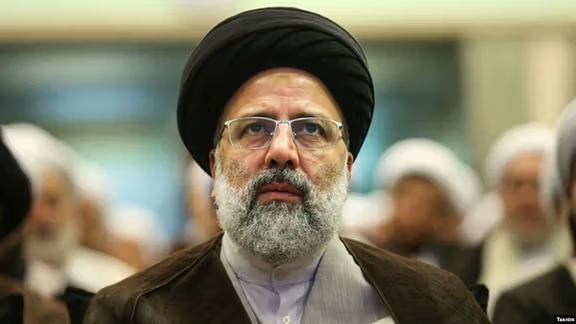
Iran’s President Ebrahim Raisi says those countries that give in to the hegemonic goals of the United States and Isreal will suffer the wrath of their nations.

Iran’s President Ebrahim Raisi says those countries that give in to the hegemonic goals of the United States and Isreal will suffer the wrath of their nations.
Raisi made the remarks in a phone call with his Iraqi counterpart, Barham Salih, on Sunday, adding that “Any country in the region, which turns a blind eye to the hegemonic goals of the United States and the Zionist regime, will not only step on the rights of its nation, but will also invoke the wrath of the Muslim nations”.
"It is now clear to everyone that foreigners are only pursuing their own interests and hegemonic goals", Raisi said, adding that “We consider the slightest insecurity in Iraq as detrimental to the entire region. Therefore, we welcome the realization of the interests of the Iraqi people and the establishment of a strong government in this country”.
The Iranian president added, “The Islamic Republic of Iran supports the unity, independence, security, and elevation of the regional and international status of Iraq”.
Iran's foreign ministry warned Iraqi authorities earlier in March that Tehran would not tolerate the use of Iraqi soil by third parties to conduct attacks against Iran.
The comment came a day after Iran's Revolutionary Guards (IRGC) targeted the capital of Iraq's autonomous Kurdistan, Erbil, with over a dozen ballistic missiles, claiming it was targeting a secret Israeli base. Tehran has armed and supported tens of thousands of Shiite militias in Iraq initially to fight the Islamic State group but later as lever of influence in Iraqi politics.
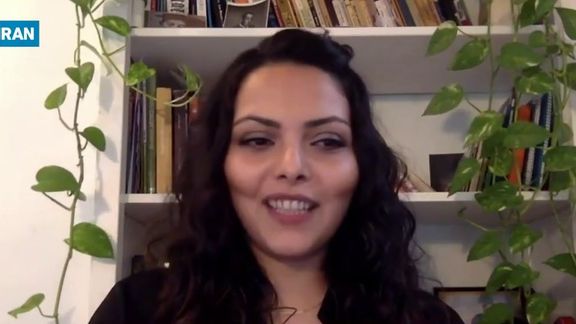
Over 300 Iranian film industry women, including superstars, movie directors, and others have protested to sexual abuse, harassment, bullying and inequality.
Niki Karimi, Hedieh Tehrani, Sahar Dolatshahi and Taraneh Alidousti are among the Iranian superstars who have signed the statement.
While male artists and most film industry personalities such as male producers as well as most state officials have ignored the protest so far, the Iranian Judiciary's deputy for human rights, Kazem Gharibabadi, and former Deputy Interior Minister Mostafa Tajzadeh have expressed their support for female artists. Gharibabadi said the judiciary is prepared to take action if the artists file complaints against the aggressors, and Tajzadeh said that "all freedom-loving and responsible citizens should defend the rights of film industry women."
Nima Hasani Nasab, the editor of the Cinema Daily, posted the pictures of a number of female Iranian filmmakers and movie actresses on his Instagram page on March 31 along with the text of a statement issued by more than 150 women involved in the industry against violence and sexual harassment. The number of signatories reached 300 by April 2.
The artists said in their statement, "We have a right to have a safe working environment free from sexual blackmailing,” and called on the Cinema House, which operates as a trade union for film industry workers, to "set up a committee with mainly female members to investigate the cases of sexual abuse, violence and harassment against women in the film industry."

The statement was issued after a well-known female assistant director, who is among the signatories of the statement disclosed that an Iranian actor had bullied and harassed her and attempted molestation and exhibitionism behind the scenes of an Iranian movie. She repeated the accusation in conversations with foreign-based Persian media.
Iranian actress Shaghayegh Nowrouzi, told Iran International TV in an interview it was important that "female artists have stressed the women's movement in their statement and the mechanism they have provided to voice their protest against sexual violence." She said "women artists explained the problem in plain terms so that it could be understood by the public. They had also explained why the problem was important and finally they issued a warning to Iranian society about the spread of such violence in a systematic form."
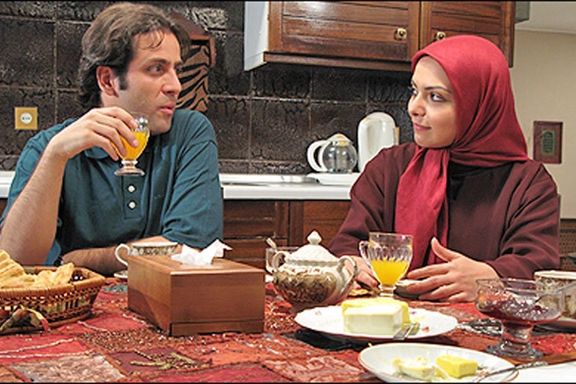
Nowrouzi praised her colleagues for putting forward a practical solution in the form of suggesting setting up a professional investigation committee at their trade union.
Meanwhile, women's right lawyer Pegah Banihashemi told Iran International television in another interview: "The social movement Me Too, paves the way for taking cases of sexual abuse at workplace to the courts. The movement provides documentation for taking the problem to a judicial level for investigation." She added that the process of collective witnessing that is inherent in the Me Too movement can help the judicial investigation particularly when time has passed since the sexual violence took place.
The Iranian Me Too movement during the past two years was limited to a few revelations made about a few cases of sexual abuse and rape and at least one of them was investigated in courts in Tehran, but other cases have been largely ignored. Two years after its launch, the Instagram account of the Iranian "Me Too" movement, @me_too_movement_iran, got its first recognition on March 28 from a vocational association, the Trade Union of Production Designers and Assistant Directors of the Iranian cinema.
While the account's posts and disclosures generated very few comments, a disclosure in a March 25 post about several cases of harassment and sexual abuse during the past few years received widespread comments, endorsements, and "likes" by Iranian artists and fans.
The post about the recognition of the movement and its Instagram account on March 28 was liked by 4,779 users in less than three days. Meanwhile, the number of the account's followers jumped from 29,000 on March 25 to more than 42,000 on March 28, which means the latest revelation by the well-known female assistant director has received social attention.
Nonetheless, as women's rights activist Mahdiyeh Golrou told the Iran International Television, "the efforts are unlikely to leave the right impact as long as Iran lacks punitive and preventative laws to restore justice regarding sexual predators and there are no NGOs to lend their support to women who are subjected to sexual violence and harassment."
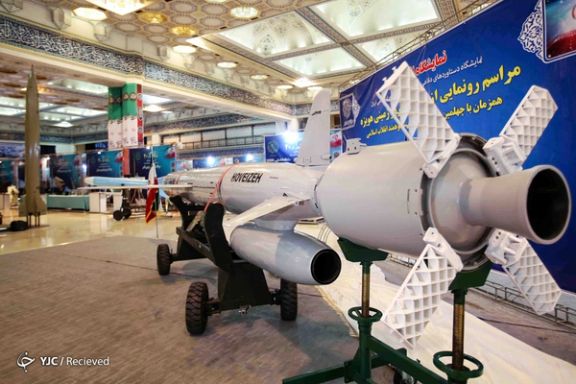
A new report says Russia is running out of some weapons because critical parts were made in Ukraine, including Kh-55 nuclear capable cruise missiles that are also used by Iran and China.
The Telegraph cited senior defense sources on Friday that Russia can’t restock its Kh-55 cruise missiles, which are launched from the air and can carry nuclear warheads, because they rely on an engine manufactured in the northeastern Ukrainian city of Kharkiv.
President Vladimir Putin may ask China to address its arms restocking crisis because they rely on an imported engine that is manufactured in the northeastern Ukrainian city of Kharkiv.
The end of the Cold War left Ukraine with 1,612 Kh-55s, 575 of which were handed to Russia while the rest were meant to be destroyed under US-led Nunn–Lugar Cooperative Threat Reduction program. However, in 2001 Iran acquired 12 of them illegally from Ukraine in a deal allegedly worth $49.5 million, and an additional six were exported to China.
Subsequently in 2015, Iran unveiled a long-range cruise missile under the name “Soumar”, largely believed to be derived from the Kh-55. In February 2019, Iran unveiled the Hoveyzah Cruise Missile, a surface-to-surface missile that also closely resembles the Kh-55.
The engines for all Russian helicopters, ships and cruise missiles and a substantial portion of fighter jet engines and ground-to-air missile and tank components were being made in Ukrainian factories, which no longer supply Russia for obvious reasons.
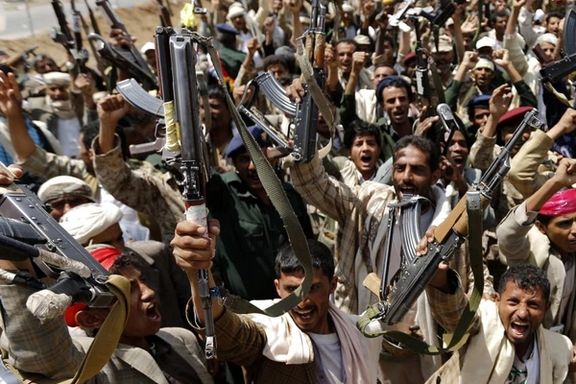
US Special Envoy for Yemen says the two-month truce between a Saudi-led coalition and the Iran-backed Houthis is an opportunity for the Islamic Republic to show its goodwill.
In an interview in Amman on Saturday, Tim Lenderking called the UN-brokered ceasefire a "decisive moment" in the near seven-year conflict and can serve as a first step" to a permanent peace.
"We would like to see Iran move away from the negative tactics and role they have played up this point," he said, adding that “If the international community and parties can work together this could be built into a lasting ceasefire and inclusive political process that ultimately gives shape to a new Yemen".
Iran has also welcomed the breakthrough as the warring sides in Yemen's conflict have agreed to a two-month nationwide truce.
It is reasonable to assume that without Tehran’s agreement the Houthis would not have accepted a ceasefire with Riyadh since the Yemeni conflict is widely seen in the region as a proxy war between Saudi Arabia and Iran.
The United States and others have criticized Iran for supplying missiles, drones and other weapons to the Houthis as part of its drive for regional influence and attempts to weaken Saudi Arabia. At the same time, Tehran is asking Washington to lift sanctions imposed on its Revolutionary Guard that is managing proxy forces in the Middle East.

Iran's envoy to Copenhagen has "strongly protested" to the use of violence against an Iranian political asylum-seeker in Denmark, who was forcibly deported.
In a Friday meeting with officials of Denmark's foreign ministry and ministry of immigration and integration, Afsaneh Nadipour conveyed Tehran's strong protest and called on the Danish authorities to apologize for the "inhumane behavior" against the Iranian asylum-seeker, punishment of the perpetrators of violence, and ensuring that similar incidents would not happen in the future.
"The Iranian ambassador's protest to Denmark is ridiculous," the family's translator in Denmark, Reza Asoudeh, told Iran International TV on Saturday, adding that in his view it is the government of the Islamic Republic that must apologize for making it impossible for this family to live in their own country and driving them to seek political asylum elsewhere.
Danish immigration authorities on Tuesday tried to deport Ghadamkheir Haghanizadeh, 37, and her two ten-year-old sons, Yousef and Younes back to Iran. Danish authorities rejected the political asylum application of Ghadamkheir and her two sons in 2017.
In the early hours of Monday, four Danish deportation agents dragged Ghadamkheir, a refugee from Iran's western province of Kermanshah, out of one of Denmark's refugee camps where she had been living for six years.

A video recorded by a resident of the camp where Ghadamkheir and her family lived appeared on social media that suggests Danish deportation agents used unnecessary violence against her. She was then shipped off to the airport with her two sons to be sent back to Iran through Istanbul, Turkey.
When in Istanbul, Ghadamkheir resisted boarding a flight to Iran and according to Kurdistan Human Rights Network injured herself in what could have been suicide attempt. She was returned to Denmark a few hours later where she is receiving medical treatment at a hospital now.
The family of five have sought refuge in Denmark since mid-2010s but her asylum request was rejected while the husband and a younger child are still living in Denmark.
After forcibly separating Ghadamkheir and her two older sons from her husband, Sirus, and their younger child, Danish authorities contacted her husband, and gave him two options: to either accept repatriation money and return to Iran, or to never see his wife and children again, Rudaw, a news agency in Iraqi Kurdistan claimed Friday.
According to Rudaw, Sirus who is currently held at a location close to the camp where they lived with the couple's infant son and the two older boys after their return from Istanbul.
Rudaw said Sirus entered Denmark illegally after travelling through several countries in 2015 to seek political asylum, while his wife and two sons entered the country legally and then requested asylum. Since she did not break Iranian law by travelling without a passport, she can return, Danish authorities say.
The couple's one-year-old baby was born in Denmark which explains why he was not deported with the mother.
The Iranian intelligence ministry arrested Sirus, a blacksmith in Kermanshah province, in 2014 on suspicion of having ties with the outlawed Kurdistan Democratic Party of Iran (KDPI) and his father had been hanged in 1984 for the same reason, while Ghadamkheir's father, an active member of the party, was shot dead by security forces in 1985.
“Due to the fact that our fathers were members of the party, they would blame us whenever something happened in the area,” Sirus told Rudaw. The family belongs to the Yarsani religious minority whose followers are discriminated against in Islamic Iran.
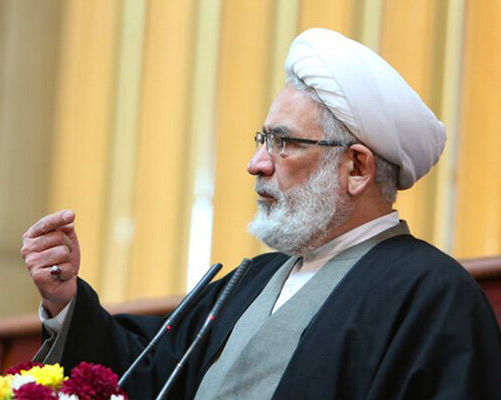
Iran’s prosecutor-general has called on the police to challenge those eating and drinking in their cars during daylight in the fasting month of Ramadan.
In a letter to the police commander-in-chief Hossein Ashtari, Mohammad Jafar Montazeri pointed out that vehicles are not private property, meaning that any eating and drinking inside cars in public places should not take place.
Ramadan fasting begins Sunday in Iran. It started Saturday, as expected, in Saudi Arabia, once the Ramadan crescent moon was confirmed Friday. The United Arab Emirates and Kuwait also declared Saturday as the first day of the lunar month.
Montazeri stressed that prosecutors across Iran should cooperate with, and support the police, in following holy month’s rituals and regulations. Foreign minister Hossein Amir-Abdollahian tweeted a wish that the holy month bring “mercy…to us and all peoples with goodness, tranquility and abundance.”
Fewer people have been observing the Muslim fasting period in recent years but police arrest and fine anyone who breaks the rules in public.
In addition to avoiding certain actions mentioned in the Qur'an, Muslims must abstain from food or drink of any kind from dawn to dusk, which will be about 14 hours in Iran this year.
Every year police enforce a national plan to deal with those who break Ramadan rules in public, and transgressors are sometimes sentenced to months of detention and lashes.